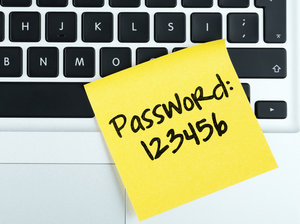
Password protected accounts are integral for navigating the web these days, but no two websites handle password creation in the same way. Some might allow you freedom in the characters you choose but not in the length of your password, while others may limit you to as few as eight characters with no special characters allowed. Indisputably, the password creating process can be frustrating- not to mention managing the ever-growing number of passwords we need on hand to access our online world.
So, is your password collection secure and in good condition? Do you use any special software or other methods to manage your passwords? Do you require your employees to abide by any password protocol? There are some surprisingly easy solutions for this very modern problem. None of the following suggestions are perfect by any means – merely tips for staying sane in a crazy system. You can:
- Write them down. Treat this list like you would any other valuable document – no sticky notes on your monitor!
- Type them into a spreadsheet stored on your computer. At a minimum, name the file something other than “Passwords!”
- Allow a major network such as Facebook, Twitter or Google to log you in. If you do opt for this method, make sure that the password you use for your social network of choice is rock-solid.
- Purchase a password manager. You can use a free version, but if you want to sync across multiple devices (you are helpless if you don’t have access to your password manager on your phone and need it to get into your computer) you’ll want the premium version.
- Isolate your information. If you are not interested in paying, another option is creating a separate e-mail account that’s linked only to your most sensitive online accounts- banks and credit cards namely. Don’t use it for anything else. The fewer ways that criminals can link your various accounts to build a profile of you, the better!
Whatever you do, remember: Anything is safer than using the same password over and over again- even if it’s a really good one!
And, most importantly, employees should be reminded of password best practices whenever possible. If an employee suffers a network breach at work, your whole system could be in jeopardy.
